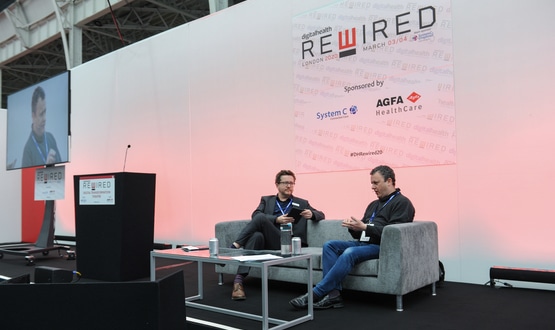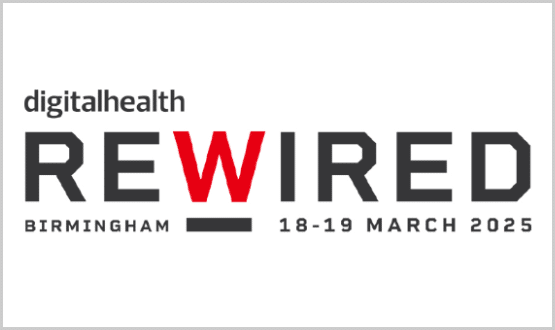NHSX CEO confirms Aspirants will be announced in waves
- 4 March 2020

The CEO of NHSX has confirmed at Digital Health Rewired that members of the Digital Aspirant programme will be announced in waves between now and 2024.
Speaking on day two of the event on March 4, Matthew Gould was asked about the programme, which was formally announced in December 2019.
Gould confirmed there will be waves of Digital Aspirants but added that NHSX is still “fine tuning” the process.
£3-6m of capital will be provided, with local match funding, over the course of the programme, he added.
The Aspirant programme will involve emphasis being shifted from Global Digital Exemplars (GDE) – seen as the most digitally advanced organisations – to bringing other trusts up to speed digitally.
Gould stressed he didn’t want NHS trusts to rush to apply if the timing isn’t right.
“I don’t want a feeling [from NHS organisations] that everyone has to get the money now,” Gould said.
“You can come into the programme at the time that is right for you.”
A major strand of the GDE programme was the concept of blueprinting, by which GDEs are meant to share digital practice with other organisations. This is an approach Gould said he was keen to continue.
“I want good practice to be shared,” he stressed.
Gould, who was questioned by Digital Health’s editor-in-chief, Jon Hoeksma, was also asked about whether he would be giving NHS trusts a minimum tech spend, to which he responded “not yet”.
“There is huge variety in what different parts of the minimum spend should be. We want to get this right and not rush into it,” he added.
Another topic explored by Gould was ensuring the NHS is ready for technology. He said NHSX will be “seriously stepping up” investment in the digital-ready workforce programme.
This will include building communities of tech people, and making sure they have the “necessary accreditation and status” in the NHS.
“We need to give board and chief execs the confidence to lead digital transformations and make sure new people coming into the NHS know about this stuff,” Gould said.
With a growing threat of Coronavirus, Gould was asked about how technology could be used to help frontline NHS staff.
He listed tools such as NHS 111 online and remote video consultations as examples of technology which could help relieve pressure on the health service if the virus becomes more widespread.
You can keep up to date with all the latest developments from Digital Health Rewired through our live blog.






2 Comments
Titanic and deckchairs again. What about cybersecurity in servers, mobiles and IoT? What about disaster recovery? What about ransomware? What about the paperless NHS? What about interoperability, meaning accessing all data from everywhere and anywhere. Where are all the ‘standards’ promised in various areas?
I don’t even see the primitive embryo of any plans for tackling these vital issues; only platitudes and adherence to Mark Twain’s; ‘Everybody is talking about the weather, nobody is doing anyhting about it’.
I think that’s a little unfair – there is only so much one can expect a central body to be able to do. Cybersecurity / DR / ransomware are all issues that local organisations have to address themselves, and there has been some money coming down for this. The Wannacry incident showed starkly that some places were unprepared whereas others were well prepared. We can’t expect some central body to ride to the rescue, we have to each in our own organisations work on getting the basics right. There are examples of good practice all over the place, it’s not easy but it can be done.
I don’t think any of us really want a return to the top-down imposition of old, but the flip side of that is the need to take local responsibility.
Comments are closed.